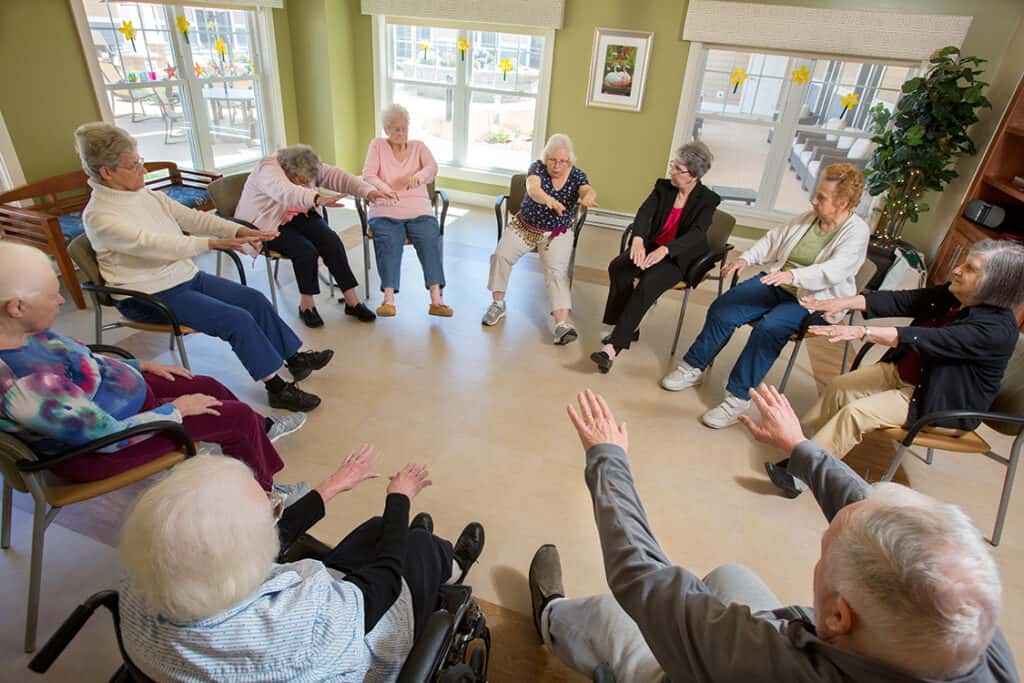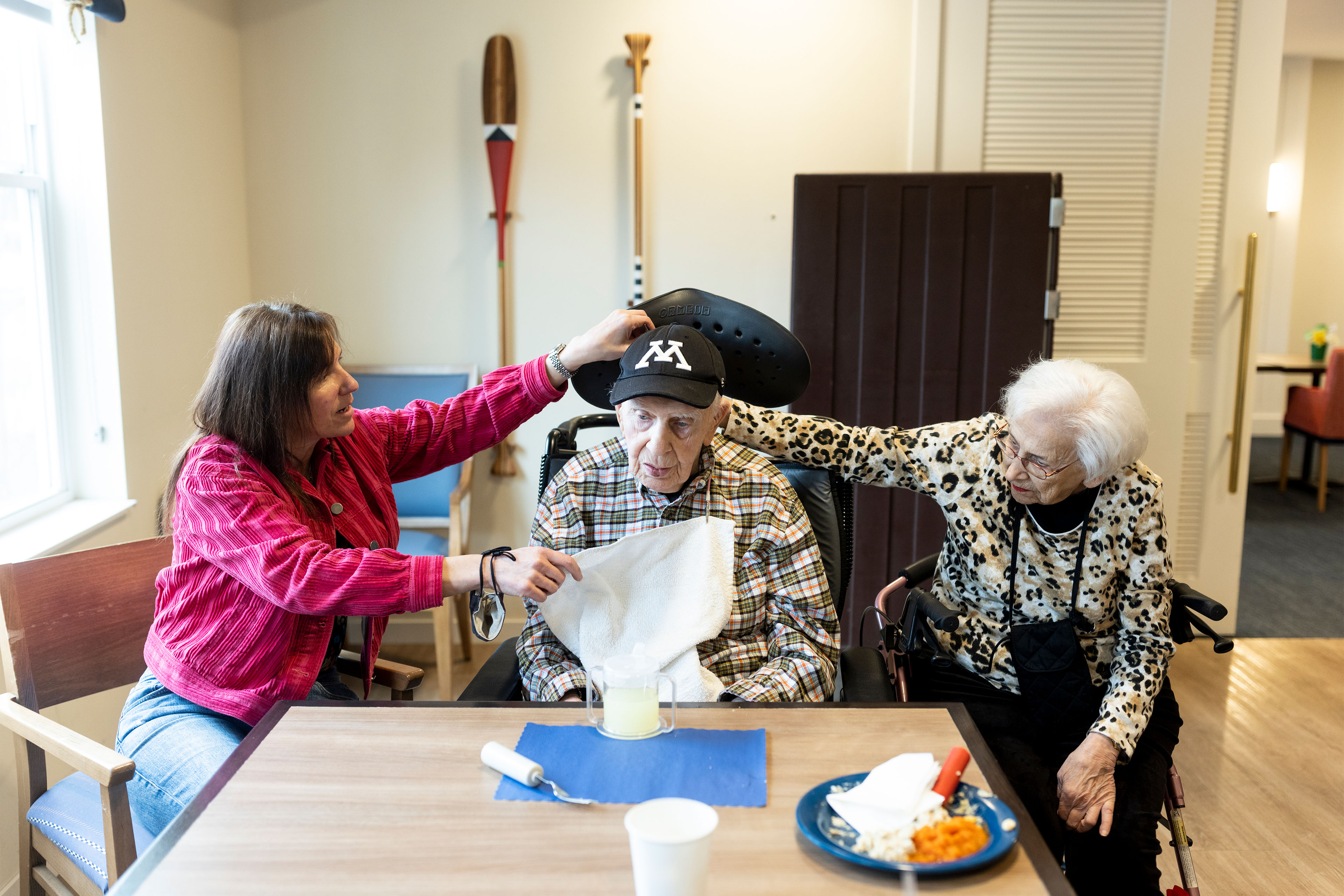Explore cost-effective Assisted Living facilities for seniors needing support.
Explore cost-effective Assisted Living facilities for seniors needing support.
Blog Article
Just How Helped Living Facilities Enhance Lifestyle for Those With Dementia
Aided living centers play an essential duty in enhancing the lifestyle for individuals with mental deterioration by executing tailored treatment methods that satisfy their unique needs. These environments combine structured activities with psychological support, fostering a sense of area while guaranteeing safety and freedom. The assimilation of interesting programs and household participation additionally enhances the citizens' experience. Yet, the intricacies of mental deterioration care proceed to evolve, triggering a closer exam of exactly how these facilities adjust and introduce to fulfill the challenges dealt with by locals and their family members. What implications does this have for future treatment models?
Personalized Care Plans
(Dementia Care Charlotte)Oftentimes, individuals with mental deterioration call for tailored assistance that resolves their one-of-a-kind requirements and choices. Individualized care plans are essential in assisted living settings, as they ensure that each resident gets suitable attention and solutions. These strategies are created collaboratively, entailing health care experts, caretakers, and household members to develop a comprehensive overview of the person's case history, cognitive capacities, and personal rate of interests.
A well-structured personalized treatment strategy generally consists of details goals connected to health and wellness monitoring, daily tasks, and social interaction. It represents the individual's cognitive decline while advertising freedom and dignity. Routine analyses and updates to the care strategy are vital, as they enable alterations based on the local's advancing problem and preferences.
Trick components of these plans commonly involve medicine monitoring, behavior support methods, and dietary standards customized to the individual's demands (Memory Care). By concentrating on individualized care, assisted living centers can foster an encouraging environment that enhances the lifestyle for people with dementia, ultimately adding to their total well-being and joy. This customized approach appreciates the uniqueness of each resident, guaranteeing they get the compassionate treatment they need

Involving Activities and Programs
Involving citizens in significant activities and programs is essential for boosting the lifestyle for individuals with mental deterioration. These tasks not just give satisfaction yet likewise promote cognitive feature and promote social communication, which can mitigate sensations of seclusion commonly experienced by homeowners.

Additionally, individualized programs are important in guaranteeing that each local's distinct preferences and capacities are recognized. This customized technique motivates involvement, improves self-confidence, and offers a sense of achievement.
Furthermore, regular assessments of residents' passions can aid staff modify and adapt tasks to much better suit evolving needs. By prioritizing engaging activities image source and programs, aided living facilities can substantially enhance the general experience and emotional health and wellness of people living with mental deterioration.
Safe and Helpful Environment
Producing a secure and supportive atmosphere is essential for people with dementia, as it straight influences their wellness and lifestyle. Helped living facilities are designed with particular attributes that promote safety and security while fostering a sense of safety and security and comfort. These environments prioritize access, with formats that decrease confusion and urge self-reliance, allowing locals to browse their environments extra conveniently.
Precaution, such as safe and secure entryways and departures, avoid wandering and unauthorized gain access to, which are critical considerations for people with mental deterioration (Assisted Living). Employee are educated to identify the one-of-a-kind requirements of residents, giving customized support and guidance to guarantee their security. The incorporation of soothing shades and acquainted things can help decrease anxiousness and disorientation, developing a much more comforting ambience.
Along with physical security, psychological assistance is paramount. Facilities commonly utilize staff that are not just experienced in caregiving but additionally trained in compassion and communication, fostering depend on and rapport with residents. This alternative approach contributes to a nurturing atmosphere where people feel valued and understood, eventually improving their total lifestyle.
Social Communication and Neighborhood
A helpful setting not just focuses on security yet additionally cultivates possibilities for social communication and neighborhood involvement, which are essential for individuals with dementia. In assisted living centers, organized activities and common areas motivate locals to get in touch with each other, lowering sensations of seclusion usually experienced by those with cognitive problems.
Social communication plays a substantial role in enhancing psychological health and cognitive feature (Assisted Living). Involving with peers in team tasks such as games, arts and crafts, or exercise not just boosts cognitive abilities yet additionally supports a sense of belonging. Facilities typically arrange occasions that promote socialization, allowing homeowners to construct connections and share experiences, which can be especially useful for those with dementia
Additionally, a dynamic community ambience can enhance the total quality of life for homeowners. Personnel members are educated to facilitate interactions and assistance locals in creating purposeful connections.
Household Participation and Support
Family members participation is crucial in sustaining people with dementia in assisted living atmospheres. Actively involving household members not just gives emotional convenience to locals yet also promotes a feeling of belonging and continuity in their lives. When families take part in treatment preparation and daily activities, they add important understandings concerning the individual's preferences, background, and needs, which can enhance individualized treatment.
Furthermore, routine household check outs can significantly improve the emotional health of residents, minimizing feelings of isolation and stress and anxiety. Member of the family can additionally help in keeping cognitive feature by engaging their loved ones in acquainted discussions and activities. This interaction reinforces personal identity and assists residents feel valued and understood.

Conclusion
In final thought, helped living facilities significantly improve the quality of life for people with dementia through individualized care plans, involving tasks, and a safe atmosphere. Collectively, these variables produce an alternative strategy to care that addresses the distinct demands of people with dementia, promoting overall well-being and dignity.
Report this page